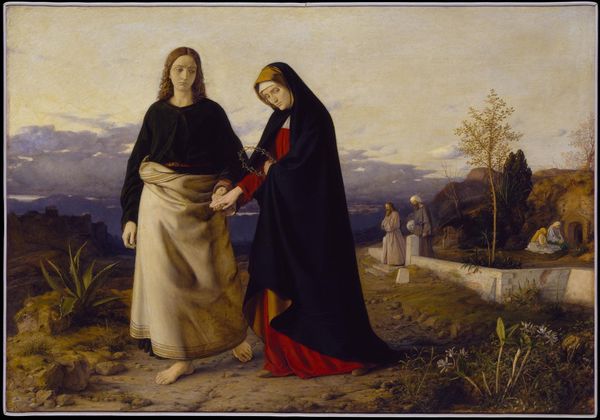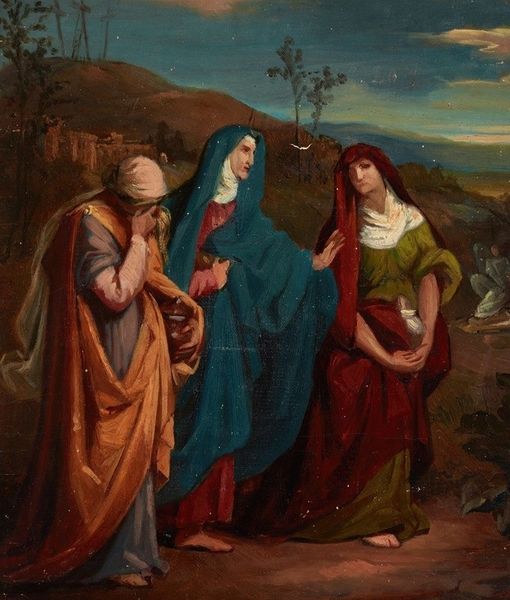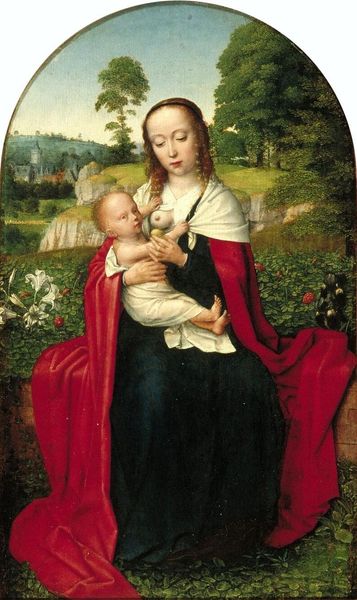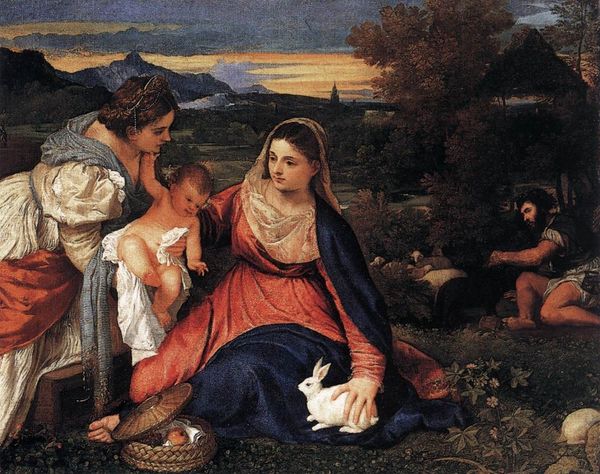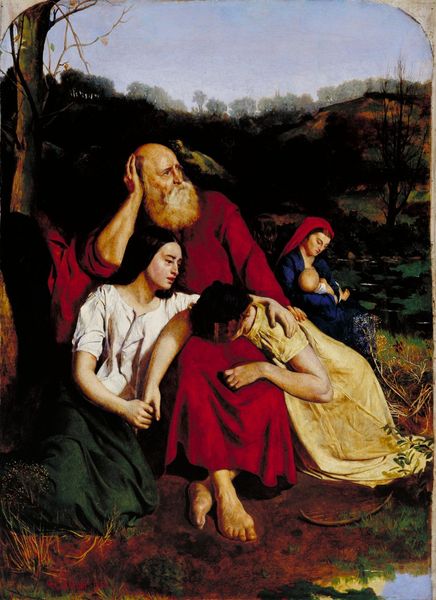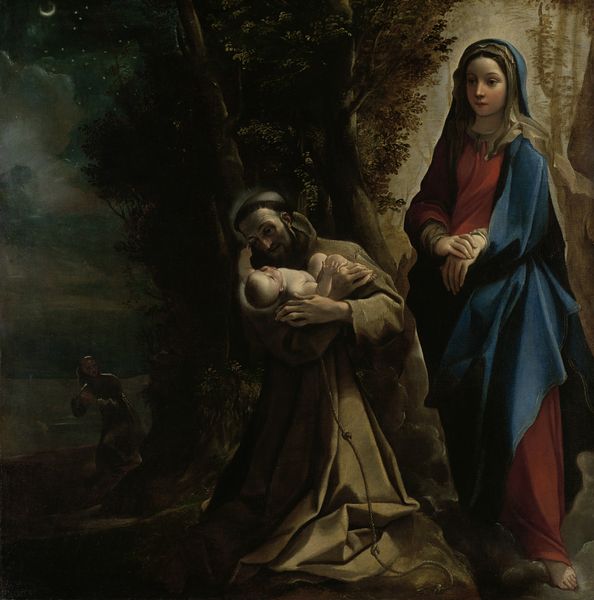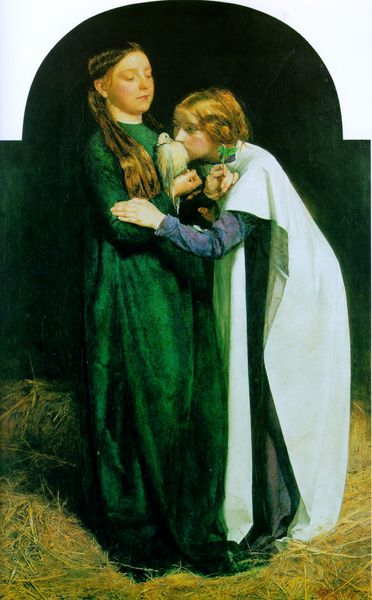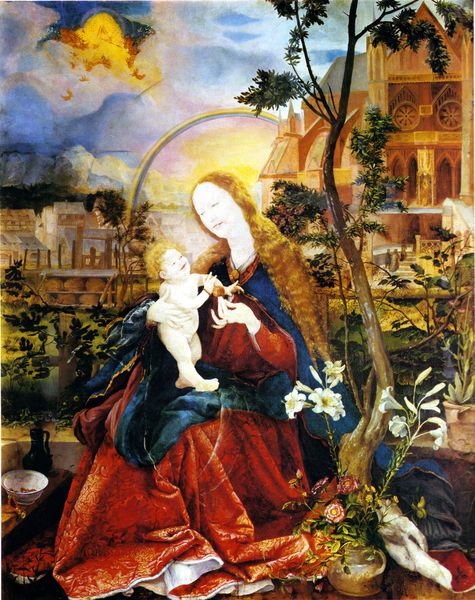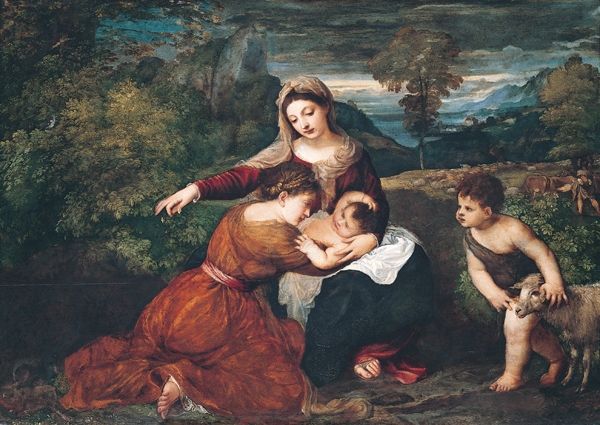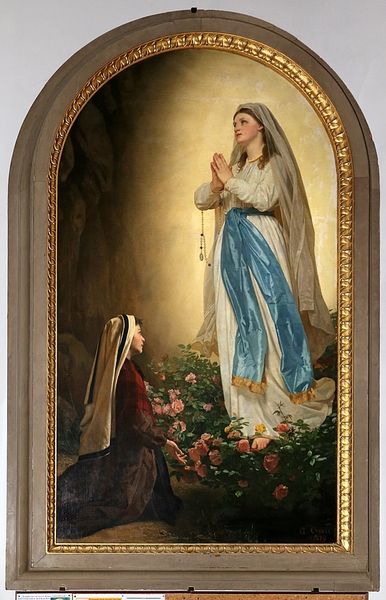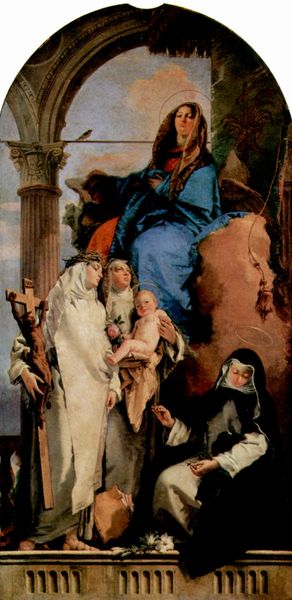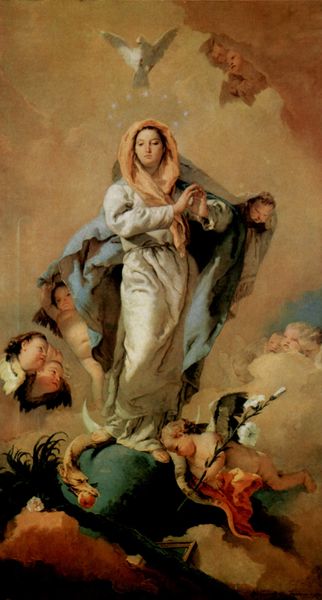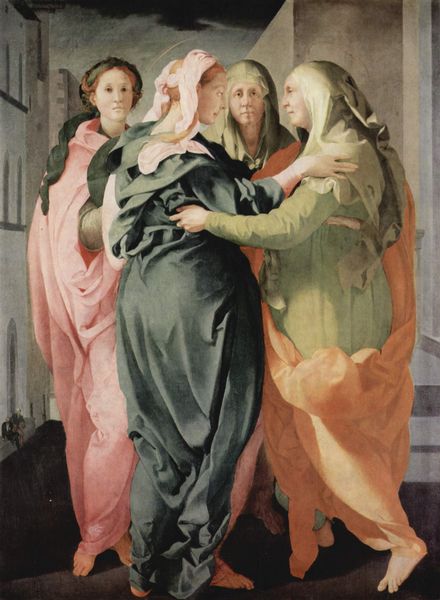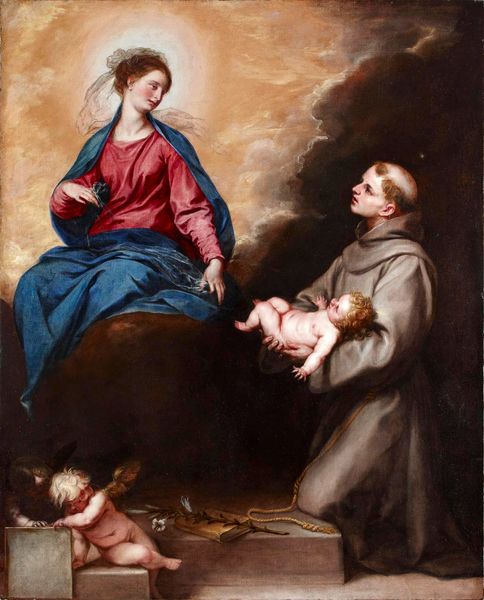
Dimensions: support: 1090 x 900 mm
Copyright: CC-BY-NC-ND 4.0 DEED, Photo: Tate
Editor: This is William Charles Thomas Dobson's "The Child Jesus Going Down with His Parents to Nazareth," housed at the Tate. It depicts Mary, Joseph, and a youthful Jesus walking in nature. What strikes me is the protective posture of Joseph, carrying Jesus. What do you see in this piece? Curator: I see a potent commentary on the social constructs of family and labor. Notice how Joseph, presumably a carpenter, bears the physical burden, yet Mary, carrying only a water jug, also supports Jesus. It challenges traditional patriarchal readings, suggesting a shared responsibility in nurturing and protecting future generations. Editor: So, you're saying it's not just a religious scene but also a reflection on gender roles and societal expectations? Curator: Precisely. Dobson subtly questions the expected power dynamics, hinting at a more equitable distribution of care. Editor: That gives me a whole new perspective. I hadn't considered the social implications within this biblical scene. Curator: Art offers layered meanings, prompting us to reconsider ingrained beliefs.
Comments
tate 10 months ago
⋮
http://www.tate.org.uk/art/artworks/dobson-the-child-jesus-going-down-with-his-parents-to-nazareth-t03448
Join the conversation
Join millions of artists and users on Artera today and experience the ultimate creative platform.
tate 10 months ago
⋮
This picture shows the twelve year old Jesus being carried back to Nazareth. This happened after Joseph and Mary had returned to Jerusalem and found Jesus with the elders in the Temple. The artist used chapter 2 of the Gospel according to St Luke as his source. Like other works by Dobson, this picture reflects the time he spent with the German Nazarene artists in Germany and Italy during the 1840s and 1850s. The Nazarene style was characterized by a fairly vigorous handling of gesture and design. This was to influence the Pre- Raphaelites. Dobson avoided the censure which greeted these artists because his characterization was diluted, as here, by a degree of sentimentalization. Gallery label, August 2004
